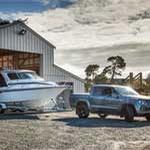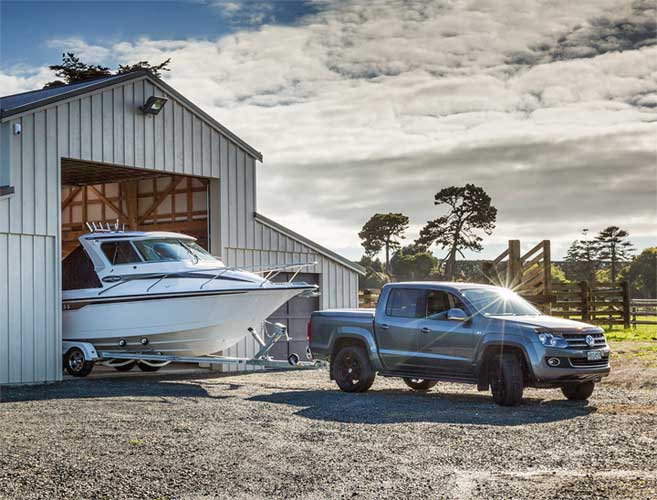
Safe towing this summer
11 November 2015, 6:00AM
Stanford James Marketing Communication
Ever had the terrifying experience of a caravan or boat trailer ‘snaking’ or swaying behind your towing vehicle when travelling at highway speeds?
Chances are you have and it may mean you haven’t got the right load balance between the vehicle and the caravan or trailer.
Incorrect loading has been identified as a factor in 27 crashes a year on New Zealand roads and it’s probably one of the most difficult things to get right, according to leading towbar manufacturer, Best Bars Ltd.
The summer season will bring more vehicles on the road towing a trailer or caravan than at any other time of year, but drivers can do much to minimise the dangers with proper preparation and by following a few simple safety steps, including that tricky question of getting the tow balance right.
“It can be unnerving and highly dangerous when a caravan or trailer swings wildly on the back of your tow vehicle, but it’s telling you something isn’t right,” says Stephen de Kriek CEO of Best Bars.
“Before you set off make sure you: have the correct download on the towball, are not overloaded for either the trailer or the towing vehicle, and that the load distribution in both the towing vehicle and the caravan/trailer is correct. Ideally this means the trailer and tow vehicle are close to level with the road surface. It’s not always easy to achieve, but there is a device that can assist.”
It’s called a load leveller and it fits onto the drawbar of the trailer and connects to the towbar on the towing vehicle, helping redress the balance through redistributing the load, so the weight is transferred further forward on the towing vehicle. These are available through leading motor vehicle distributors supplied by Best Bars.
Poor weight distribution and over-loading aren’t the only dangers summer motorists should be aware of. Defective or poorly fitted towbars, wrong size towball to coupling match, low tyre pressures, safety chains not connected and defective brakes and wheel bearings are also among leading causes of trailer related accidents.

Arrive safely with your boat or caravan this summer by following simple safety tips from Best Bars. Photo courtesy of Stanford James Marketing Communication
Before heading off with the trailer or caravan in tow, Best Bars advises motorists to check all these aspects as well as the condition of the towbar, ensuring all bolts attaching it to the vehicle are tight, there is no corrosion present or cracking in the vehicle chassis or towbar structure, and the towball itself is not worn and is secured tightly to the tongue. Also remember that a towball is a wear item and should be replaced periodically if any wear is noticed.
Even if the towbar looks OK from the outside, all may not be up to the task. Some towbars are made from thin walled steel that simply cannot withstand the vehicle manufacturer’s towing load guidelines.
If fitting a new towbar, ideally purchase a genuine part towbar, such as those manufactured by Best Bars and endorsed by the vehicle manufacturer, or ensure it is a towbar designed and tested to NZ Standard 5467 by a reputable manufacturer and has a metal tamper-proof label attached. All towbars should be professionally fitted. Avoid cheap imported towbars, second-hand towbars or those available online, which may use inferior parts and/or be poorly designed and/or be damaged.
Make sure the towball is correctly matched to the trailer or caravan coupling; there are two main sizes of towball used in New Zealand (1 7/8-inch and 50mm). Best Bars has a quick-change convert-a-ball accessory that accommodates both sizes – handy when renting a trailer or swapping between trailers.
A safety chain must connect the towing vehicle and lighter trailer/caravan, with double chains required if the towed weight is 2,000kg or more.
Check and inflate the trailer and vehicle tyres to the correct pressures, as under-inflation can cause the tyre to overheat and blow-out. Similarly, make the trailer brakes and wheel bearings are in good working order to avoid overheating.
When packing the caravan or trailer/boat for the trip, make sure that the load on the towball tongue does not exceed the recommended tongue weight (stated on the label). Too much weight may not only cause stability problems when driving, as already mentioned, it can also put undue load on the towbar and connection to the vehicle chassis.
And if you are just using the towball to mount a cycle rack, be sure to check the attachment periodically on the journey and tether the rack to the vehicle wherever possible.
For more information on towbars and towing go to www.bestbars.co.nz.
